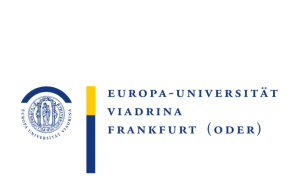 Dr. Nadja Alexander is Director of the Singapore International Dispute Resolution Academy at Singapore Management University. She is described as a practical thinker and thinking practitioner and has been consistently recognized as a leading international mediator by Who’s Who Legal. Nadja’s work embraces interdisciplinary approaches to enhance capacities of professional conflict interveners and deepen conflict engagement.
Dr. Nadja Alexander is Director of the Singapore International Dispute Resolution Academy at Singapore Management University. She is described as a practical thinker and thinking practitioner and has been consistently recognized as a leading international mediator by Who’s Who Legal. Nadja’s work embraces interdisciplinary approaches to enhance capacities of professional conflict interveners and deepen conflict engagement.
An award-winning author and educator, Nadja has been long-engaged as a policy adviser and conflict intervener in diverse legal, corporate and development settings. She has advised on mediation policy for international bodies, such as the World Bank Group, and national governments in Europe, Asia, Australia and Africa. In 2018 she joined the Singaporean delegation to UNCITRAL WG II on the enforceability of international mediated settlement agreements.
Nadja is a past Vice Chair of the Mediation Committee of the International Bar Association. She is a Director on the Board of the Singapore International Mediation Institute, on the Board of Advisors of the Vienna International Arbitration Centre and the Chair of the Board of the Commercial Dispute Resolution Competition also in Vienna.
Nadja is editor of the Global Trends in Dispute Resolution book series and the Kluwer Mediation Blog; her work has been published variously in English, German, Chinese, Spanish, Russian and Arabic. Her books include International and Comparative Mediation: Legal Perspectives, Global Trends in Mediation, Negotiation: Strategy Style Skills, and The EU Mediation Handbook: Regulatory Robustness Ratings for Mediation Regimes.
Auswahl an Publikationen / Selection of publications:
- Alexander, Nadja/LeBaron, Michelle: The Alchemy of Mediation: Aesthetic Wisdom for a Fragmented Age, in: Ian Macduff (Hrsg.): Essays on Mediation, Dealing with Disputes in the 21st Century, Alphen aan den Rijn 2016, 249-269. PDF
- Alexander, Nadja: Harmonisation and Diversity in the Private International Law of Mediation: The Rhythms of Regulatory Reform, in: Klaus J. Hopt/Felix Steffek (Hrsg.): Mediation: Principles and Regulation in Comparative Perspective, Oxford 2012, 131-204. PDF
- Alexander, Nadja: The Mediation Metamodel: Understanding Practice, Conflict Resolution Quarterly 26 (2008), 97-123 PDF
Prof. Nadja Alexander
Singapore International Dispute Resolution Academy
at Singapore Management University
School of Law
55 Armenian Street
Singapore 179943
T: (65) 6828 0061
Nadja(at)sidra.academy
www.sidra.academy
![]()
Dr. Nadja Alexander ist Direktorin der Singapore International Dispute Resolution Academy an der Singapore Management University. Sie wird als praktische Denkerin und Denkpraktikerin beschrieben und wurde von Who’s Who Legal wiederholt als führende internationale Mediatorin anerkannt. Nadjas Arbeit umfasst interdisziplinäre Ansätze, um die Fähigkeiten professioneller Konfliktinterventionen zu verbessern und das Konflikt-Engagement zu vertiefen.
Als preisgekrönte Autorin und Pädagogin ist Nadja seit langem als Politikberaterin und Konfliktintervenientin in verschiedenen Rechts-, Unternehmens- und Entwicklungsbereichen tätig. Sie hat internationale Gremien wie die Weltbankgruppe und nationale Regierungen in Europa, Asien, Australien und Afrika beraten. Im Jahr 2018 schloss sie sich der Delegation Singapurs in der UNCITRAL WG II zur Durchsetzbarkeit von internationalen Vergleichsvereinbarungen an.
Nadja ist ehemalige stellvertretende Vorsitzende des Vermittlungsausschusses der International Bar Association. Sie ist Direktorin im Board des Singapore International Mediation Institute, im Board of Advisors des Vienna International Arbitration Centre und Vorsitzende des Board of the Commercial Dispute Resolution Competition ebenfalls in Wien.
Nadja ist Herausgeberin der Buchreihe Global Trends in Dispute Resolution und des Kluwer Mediation Blog; ihre Arbeiten wurden in verschiedenen Sprachen veröffentlicht: Englisch, Deutsch, Chinesisch, Spanisch, Russisch und Arabisch. Ihre Bücher umfassen internationale und vergleichende Mediation: Rechtliche Perspektiven, Globale Trends in der Mediation, Verhandlung: Strategy Style Skills und das EU-Mediationshandbuch: Regulatorische Robustheitsbewertungen für ein Mediationsregime.

